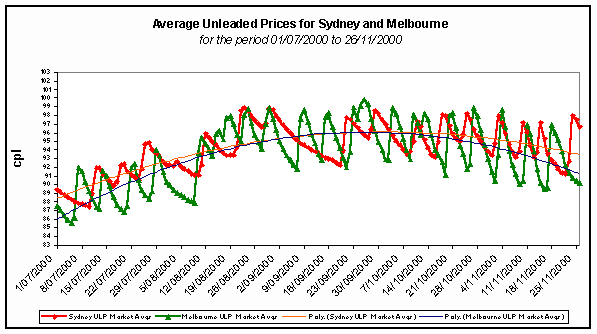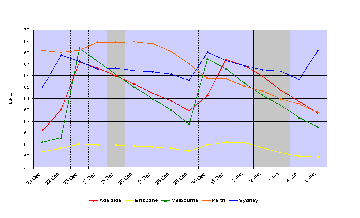Time To Put Reality Back Into Petrol Prices Debate
TIME TO PUT REALITY BACK INTO PETROL PRICES DEBATE
The Australian Institute of Petroleum has today exposed a number of myths about petrol pricing which have taken hold in recent months.
"Petrol prices are set by the normal pressures of supply and demand, with Australians enjoying amongst the cheapest petrol in the developed world," the Institute's Executive Director, Mr Bryan Nye, said today.
"Unfortunately, a number of myths have arisen that don't paint a true picture of petrol prices in Australia."
MYTH: Petrol prices are continuing to rise.
REALITY: Petrol prices actually peaked in September, when crude oil prices were at historic highs, and the Australian dollar was losing ground against the US dollar.
Crude oil prices have actually been falling in recent weeks, but the Australian dollar is only slowly recovering ground against the US dollar. Petrol prices have therefore remained stable and in some cities have started to fall. This chart shows statistical average petrol prices in Sydney and Melbourne between July and November this year:

MYTH: Petrol prices are manipulated to always increase at holiday periods, such as Christmas and New Year.
REALITY: Petrol prices simply move in response to supply and demand - just like all other goods and services. The volatility in pricing is due to factors such as intense competition, exchange rate changes and crude oil price changes, all of which feed into pump prices. There is no mystery and nothing sinister about Christmas petrol prices. This chart shows what happened to petrol prices over Christmas 1998-99 in Australia's five largest cites:
Daily Unleaded Average for Major Cities
21st December 1998 to 5th January 1999

"It is clear that in every city, prices were in fact trending down over Christmas and then again in the New Year," Mr Nye said.
MYTH: Petrol prices should fall immediately when crude oil prices fall.
REALITY: While petrol prices do closely follow crude oil prices over time, the effect of crude oil price changes on petrol prices is not immediate, due to transport lags and existing stock levels.
Crude oil is by far the single biggest cost component in the manufacture of a litre of petrol. Australian refiners must purchase their crude oil on the open market, and therefore have to accept the prevailing market price. They do not profit from increased crude oil prices. In fact, Australian oil companies have been cushioning motorists from the full effect of highecrude oil prices and lower exchange rates.
Refiners purchase their crude oil supplies from a variety of sources. It takes around thirty days for a shipment of crude oil purchased in the Middle East to reach an Australian refinery. Therefore there is a lag in the time between crude oil price reductions and theffect at the petrol pump. In addition, retailers have to clear higher priced petrol from thetanks before they can provide cheaper fuel. This is particularly the case for diesel in city areas.